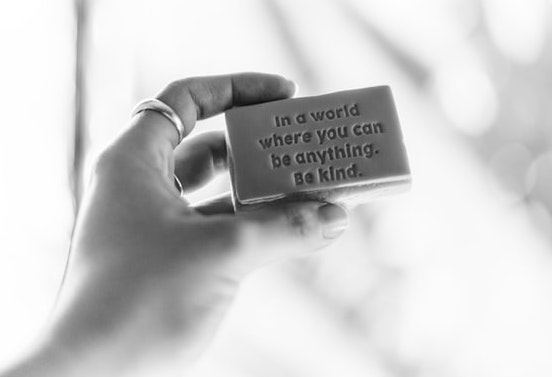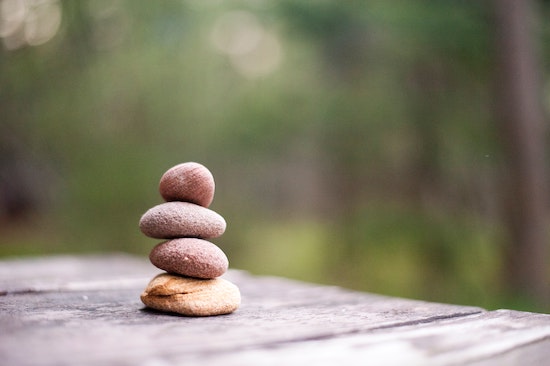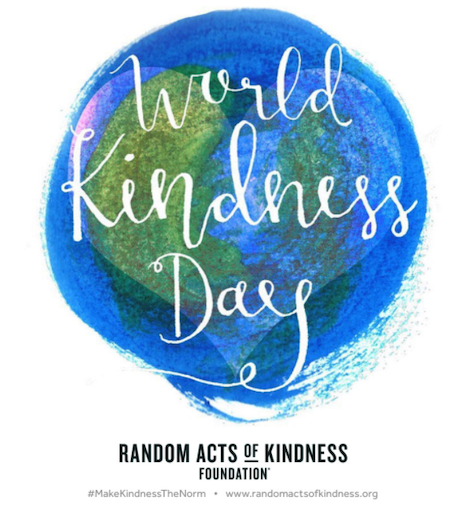Become a RAKtivist - Make Kindness the Norm
Doing an act of kindness produces the single most reliable momentary increase in well-being of any exercise that has been tested. Find one wholly unexpected kind thing to do tomorrow and just do it. Notice what happens to your mood.
– Dr. Martin Seligman
Most of us spend so much time and energy focusing on the negatives in our lives that when a moment of kindness appears, it’s as if a fog has been lifted. It makes us feel good and we can't help but smile. Imagine a world where you succeed by being nice, where we all pay it forward, where people look out for each other, and where kindness is the central philosophy.
The word kindness is believed to have originated from the old English word ‘kyndes’ which means 'nation' and 'produce an increase' and the Middle English word ‘kinde’ which means 'friendly' and 'deliberately doing good for others.' The Roman Emperor and Stoic, Marcus Aurelius, believed the ability to show kindness and compassion toward others, particularly when they have done something that upsets or angers you, was one of the truest signs of inner strength. Kindness, or doing good, means putting other people’s needs before our own. It could be by giving up our seat to someone who might need it more or offering to make a cup of tea for someone at work, holding the door open for a stranger, or paying for someone's meal in the drive-through line. A good deed doesn’t need to take a huge amount of time or money.
Kindness generates good feelings, which in turn generate positive biological changes. It reduces stress, lowers blood pressure, improves immune system functioning, and fosters a sense of connectedness. Helping others is thought to be one of the ways that people create, maintain, and strengthen their social connections. In a 2006 study, Jorge Moll and colleagues at the National Institutes of Health found that when people give to charities, it activates regions of the brain associated with pleasure and trust, creating a “warm glow." Scientists also believe that altruistic behavior releases endorphins in the brain, producing a positive feeling known as the “helper’s high.”
And acts of kindness can create kindness spirals. Research has shown that individuals who received an act of kindness experience higher levels of happiness (when compared to controls), and that they are nearly three times more likely to engage in prosocial acts toward others. The wonderful thing about kindness is that it has a ‘ripple effect’ – the recipient of a kind act is likely to ‘pass it on.’ Acts of kindness benefit more than just the giver and the receiver. It can influence everyone they come in contact with.
Rick Hanson, a neuropsychologist, writes in his article for Psychology Today how wishing other well and doing helpful acts for others is connected to our capacity to be kind to ourselves. Thus, not only is kindness cyclical but to have the capacity for kindness you must also be kind to yourself. Treating oneself with kindness is to respect yourself and to be self-compassionate. Engaging in self-care practices — getting rest, engaging in some exercise, celebrating your accomplishments, forgiving yourself for your mistakes — prepares you to be kind and compassionate to others.
You can increase your capacity for kindness by regularly practicing loving-kindness and self-compassion meditations. The practice involves picturing people who have been kind to you in your life and repeating silently to yourself phrases like, “May they be safe. May they be happy. May they be free from suffering. May they have the ease of well-being.” In these meditations, you often begin by extending loving-kindness to yourself. And then to your loved ones. You continue to expand your circle of loving-kindness to your friends, then your neighbor and co-workers, and eventually to everyone everywhere. It can be helpful to include people in your meditation that you've had difficulties interacting with or perhaps find hard to like. The goal is to increase your awareness that all people, including you, deserve to feel safe, to be happy, to be free of suffering, and live with ease. Take 10 minutes to experience the Loving-Kindness and Self-Compassion meditations posted on the Wellbeing Elixir website.
Inspirations to Spark Kindness
Looking for some inspiration on how to bring more kindness into the world? Consider these ideas!
Personal Relationships: Take a few moments to reach out to someone. Send a message to someone (call, text, write) who has meant a lot to you. Maybe send a picture or video. Send flowers to a friend or a card to a mentor.
Workplace Relationships: Offer support to a colleague who's struggling. Speak to a co-worker that you don’t normally engage with. Praise a colleague for something they have done well. Offer a sincere thank you to a colleague who has helped you.
Kindness Apps: There are lots of "kindness apps" available for your smartphone. These apps provide lists of 100's of small acts of kindness that you can perform each day. The Great Kindness Challenge offers two apps geared towards kids — one is for schools and the other is for families. These apps challenge kids (and their parents!) to complete a set of tasks, like smiling at 25 people or taking a board game to a senior center to play.
Charitable Donations: Think about how you can support a non-profit organization that's doing good work to make the world a better place. Consider donating your time or money — but remember that donations of time result in more positive, feel-good emotions and increase social bonds.
Self-Kindness: Create a personal oasis by setting aside some time in your week to reset and reboot. And that means taking a break from social media use! Do something you enjoy — dancing, singing, cooking, crafting. Spend time in nature. Keep a gratitude journal and consider how your can express your gratitude through an act of kindness. Barbara Fredrickson, a pioneering happiness researcher and author of Positivity, suggests that cultivating gratitude in everyday life is one of the keys to increasing personal happiness. “When you express your gratitude in words or actions, you not only boost your own positivity but [other people’s] as well”.
Become a RAKtivist!
A RAKtivist? Yes - become someone who's a random acts of kindness (RAK) ambassador! Someone who spreads kindness by doing something, every day, to make the world a little more pleasant. You can apply to become an official RAKtivisit through the Random Acts of Kindness Foundation.
And be sure to observe International Kindness Day is February 17, 2024 and Random Acts of Kindness Week is Feb 14-19th in 2024! Make a difference by paying forward a random act of kindness to yourself and to others. If you want to share an act of kindness you received consider using the hashtags #MakeKindnessTheNorm and #ExploreTheGood when using social media.
Kindness simply is a positive action that leaves someone in a better situation than before. It doesn’t have to be anything extravagant or require spending hours volunteering. Kindness starts with one small act. Do something you enjoy, keep others in mind, don’t overdo it.
Let’s make kindness the norm!
Reflection - Spread Kindness
Spread kindness like confetti! What ideas do you have to SPREAD HAPPINESS? Tell us about a random act of kindness you've received or given ... and tell us what happened afterward! Post a comment.
Resources and Readings:
The Random Acts of Kindness Foundation strives to make kindness the norm by offering free online resources to families, communities, schools, and workplaces.
Suttie J and Marsh J. Five Ways Giving Is Good for You. Greater Good Magazine: Science-based Insights for Meaningful Living. December 2010.
Hall D. The Importance of Kindness. Psychology Today. December 2017.
Proctor M. 6 Science-back Ways that Kindness is Good for Your Health. Quiet Revolution. Accessed October 30, 2021.
Cheers-



